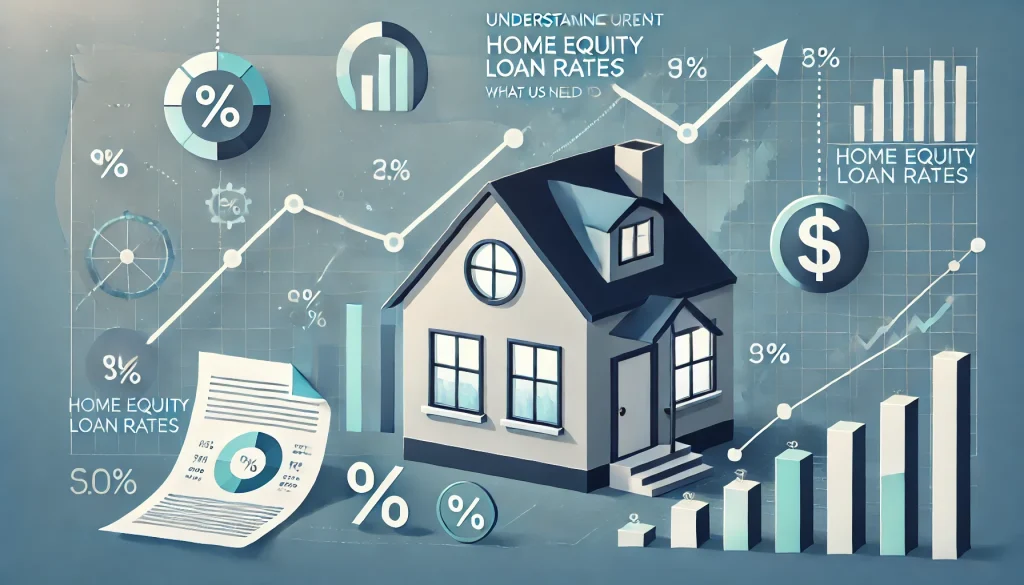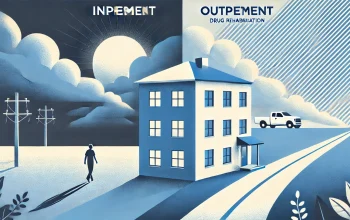Home Equity Loan Rates: What US Homeowners Should Know 2025

Home equity loans have become a popular financial option for homeowners across the United States. They allow property owners to tap into the equity they’ve built in their homes, using it as collateral to secure a loan. This type of loan can be used for various purposes, such as home renovations, consolidating debt, or covering significant expenses like education or medical bills. Understanding home equity loan rates is crucial, as they directly affect how much you’ll repay over time.
In this comprehensive guide, we’ll explore what home equity loan rates are, factors that influence them, and what US homeowners need to know to secure the best possible rates. We’ll also address frequently asked questions and provide tips to help you navigate the home equity loan process.
Table of Contents
What is a Home Equity Loan?
A home equity loan allows homeowners to borrow against the value of their home. The amount you can borrow depends on the equity you’ve accumulated. Equity is the difference between the market value of your home and what you still owe on your mortgage.
For example, if your home is worth $400,000 and you still owe $200,000 on your mortgage, you have $200,000 in equity. Lenders typically allow you to borrow a percentage of this equity, often up to 80% or 85%, depending on various factors like your credit score and income.
Types of Home Equity Loans
There are two main types of home equity loans:
- Fixed-Rate Home Equity Loans: This option allows homeowners to borrow a lump sum of money at a fixed interest rate. Your payments remain consistent throughout the life of the loan, which typically ranges from 5 to 30 years.
- Home Equity Lines of Credit (HELOC): A HELOC works more like a credit card. Instead of receiving a lump sum, you are given access to a line of credit that you can draw from as needed. The rates are usually variable, meaning they can fluctuate over time, often starting low and increasing with market conditions.
Understanding Home Equity Loan Rates
Home equity loan rates vary by lender and can fluctuate with market conditions. They are influenced by the prime rate, which is the benchmark rate used by banks to set interest rates for loans and lines of credit. Generally, the better your credit score and financial profile, the lower the rate you can secure.
Fixed vs. Variable Rates
One of the first decisions you’ll need to make is whether you prefer a fixed-rate loan or a variable-rate HELOC.
- Fixed-rate loans: With a fixed-rate loan, the interest rate remains the same throughout the term of the loan, providing consistent monthly payments. These loans are beneficial for those who prefer financial stability and want to know exactly what they’ll pay each month.
- Variable-rate HELOCs: With a HELOC, rates can fluctuate based on market conditions. This means your monthly payments can increase or decrease depending on how interest rates change over time. While HELOCs often start with a lower introductory rate, they can become more expensive if interest rates rise.
Factors That Affect Home Equity Loan Rates
Several factors influence the interest rate you’ll receive on a home equity loan. Understanding these factors can help you negotiate a better deal:
1. Credit Score
Your credit score is one of the most significant factors lenders consider when determining your loan rate. Borrowers with excellent credit scores (generally 740 or above) will qualify for the lowest rates, while those with lower scores will face higher interest rates or may struggle to secure a loan at all.
2. Loan-to-Value Ratio (LTV)
The LTV ratio is the percentage of your home’s value that you’re borrowing. For example, if your home is valued at $400,000 and you want to borrow $100,000, your LTV ratio is 25%. Lenders prefer lower LTV ratios because they indicate less risk. Most lenders will cap the LTV ratio at 80% or 85%.
3. Income and Debt-to-Income Ratio (DTI)
Lenders want to ensure that you have a steady income to repay the loan. Your debt-to-income ratio, which compares your total monthly debt payments to your gross monthly income, is an important factor. A lower DTI ratio indicates that you have enough income to cover your existing debts and the new loan payment.
4. Home Value and Location
The current value of your home plays a critical role in determining how much equity you have and how much a lender will allow you to borrow. Homes in areas with higher property values or in markets that are appreciating may allow for more favorable loan terms.
5. Economic Conditions
Broader economic factors, such as inflation, the Federal Reserve’s interest rates, and market demand, can affect home equity loan rates. When the Federal Reserve raises interest rates, lenders typically increase their rates for all types of loans, including home equity loans.
Current Home Equity Loan Rates in 2024
As of 2024, the average home equity loan rates for a fixed-rate loan range between 6.25% and 8.50%, depending on the borrower’s credit score, loan-to-value ratio, and other factors. For HELOCs, rates tend to start lower, around 5.50% for prime borrowers, but can increase over time with market conditions.
How to Get the Best Home Equity Loan Rates
Securing the best home equity loan rates requires careful planning and comparison shopping. Here are some tips to help you get the lowest rates possible:
1. Improve Your Credit Score
Your credit score plays a significant role in the interest rate you’re offered. To improve your credit score, consider the following steps:
- Pay down credit card balances.
- Ensure you’re making all loan payments on time.
- Avoid opening new lines of credit in the months leading up to your loan application.
A higher credit score can significantly reduce the interest rate on your home equity loan.
2. Shop Around for Lenders
Not all lenders offer the same rates or terms, so it’s important to compare offers from multiple financial institutions. Many banks, credit unions, and online lenders offer home equity loans, and each may have different criteria and rates.
3. Negotiate Terms
Once you’ve received a few offers, don’t hesitate to negotiate with lenders. If one lender offers a lower rate or better terms, use that as leverage when speaking with other lenders.
4. Consider Paying Points
Some lenders offer borrowers the option to pay points upfront in exchange for a lower interest rate. One point typically equals 1% of the loan amount. This can be a good option if you plan to stay in your home for several years, as the long-term interest savings may outweigh the upfront cost.
5. Choose the Right Loan Type
If you need a lump sum of money and want predictable payments, a fixed-rate home equity loan is likely the best option. However, if you’re unsure how much money you’ll need or want the flexibility to borrow as needed, a HELOC might be a better choice. Be mindful of the fact that HELOCs come with variable rates, which can increase over time.
When to Avoid a Home Equity Loan
While home equity loans can be a useful financial tool, they’re not always the best option. Here are a few scenarios when you might want to avoid taking out a home equity loan:
- If You Have High-Interest Debt: If you’re already struggling with high-interest debt, adding a home equity loan could worsen your financial situation.
- If Housing Market is Unstable: If the housing market in your area is unstable, there’s a risk that your home value could drop, reducing your equity and increasing your financial risk.
- If You Plan to Move Soon: Since home equity loans typically have long repayment terms, they’re best suited for homeowners who plan to stay in their homes for several years. If you plan to move soon, you may not benefit from taking out a loan.
Alternatives to Home Equity Loans
Before committing to a home equity loan, consider alternative financing options that may be better suited to your needs. These include:
- Personal Loans: If you don’t want to use your home as collateral, a personal loan may be an alternative. However, interest rates on personal loans are often higher than home equity loans.
- Cash-Out Refinance: A cash-out refinance allows you to refinance your mortgage for more than you owe and take the difference in cash. This can be a good option if current mortgage rates are lower than what you’re currently paying.
- Reverse Mortgage: Homeowners aged 62 and older may consider a reverse mortgage, which allows them to convert part of their home’s equity into cash without selling the home.
Contact Information
Whether you’re considering a home equity loan for a large renovation project or to consolidate debt, understanding the rates, factors affecting those rates, and how to secure the best terms is essential. By doing your research, improving your financial profile, and comparing offers from multiple lenders, you can ensure you get the best possible home equity loan rate to meet your financial needs.


